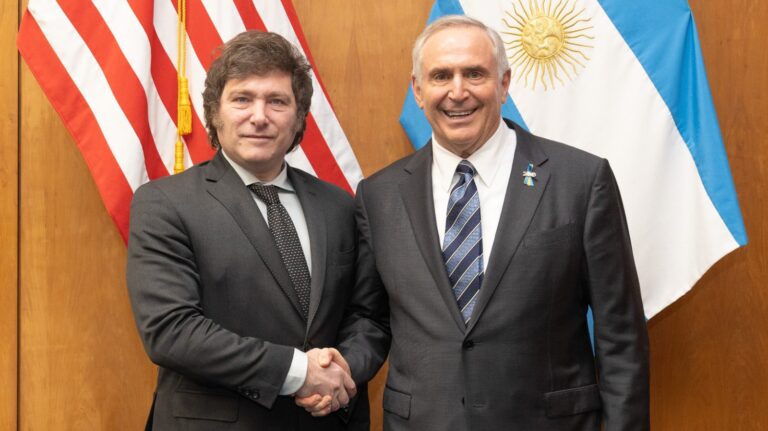The U.S. House of Representatives on March 23 passed a resolution urging the U.N. to respect the rights of individuals and families in population control programs, including those administered by the U.N. Population Fund (UNFPA). The resolution, modeled upon the Tiahrt Amendment signed into law last October as part of the Omnibus Budget Act, is an effort to curb the Chinese-style human rights abuses endemic to many such programs.
The resolution rules out “quotas or other numerical targets of total number of births, number of family planning acceptors, or acceptors of a particular method of family planning. . . payment of incentives, bribes, gratuities, or financial reward to any person in exchange for becoming a family planning acceptor or to program personnel for achieving a numerical target or quota. . . . No [population control] project should deny any right or benefit, including the right . . . to participate in any program of general welfare or . . . health care, as a consequence of any person’s decision not to accept family planning services.” Quotas, bribes and sanctions are staples of China’s one-child-per-family policy.
Also required by the resolution are informed consent, full disclosure of the medical risks of all sterilization and contraceptive procedures and drugs, and the avoidance of experimental methods. Women in the developing world have often been used as guinea pigs in the testing of new contraceptives without their permission or informed consent.
Congressman Todd Tiahrt (R-Kansas), who last year convinced his colleagues to pass the amendment which bears his name, again took the lead in extending these protections to families and women in the developing world who may come under attack in U.N. Population Fund programs.
The practical effect of this resolution, which was introduced on March 25 by the Argentinean delegation to the Cairo + 5 Preparatory Conference underway in New York, will be to call into question many of the UNFPA’s programs around the world, including its recently announced program in China.
Whether the U.N. General Assembly accepts the resolution or not—the final decision will not be made until the Cairo + 5 conference itself in New York from June 30 to July 2—the Tiahrt Amendment will itself serve as a check upon abusive population control programs. If Congress vigorously demands enforcement of its provisions, and oversees the result, population control as it is currently practiced by the USAID and UNFPA will end.
“China’s one-child policy violates virtually all of the provisions of the resolution the House just approved,” says Congressman Tiahrt. “Beijing uses targets and quotas, bribes and threats, to work its way on Chinese women. Informed consent is unknown. The UNFPA’s involvement in China should render it ineligible for U.S. funds.”
The Tiahrt Amendment won passage last year in part because of the ill-considered decision of the UNFPA to resume participating in China’s infamous one-child-per-family policy. The heavy reliance of Beijing’s family planners on forced abortion and forced sterilization has long been well-known. China’s “technical policy on birth control,” which dates from 1983, mandates contraception (preferably difficult-to-remove IUDs) for all women of childbearing age who have one child, sterilization for women with two children, and abortion for all women who are pregnant without government permission. Aside from passing the Tiahrt Amendment, Congress also zeroed out UNFPA’s annual $25 million dollar subsidy from the U.S. Treasury.
This is not the first time that the UNFPA has lost its U.S. funding. In 1986 the U.S. Congress passed the Kemp-Kasten Amendment, which forbid any U.S. funds from going to “any country or organization which participated in the support or management of a program of forced abortion or sterilization.” Either get out of China, U.S. lawmakers in effect told UNFPA, or do without U.S. dollars. The UNFPA chose not to offend its biggest client—China—and in so doing lost its biggest donor—the United States. This funding was later restored by the Clinton administration, which turned a blind eye to the UNFPA’s continuing involvement with China.
This ongoing funding battle is currently being refought on Capitol Hill. Last April, Congresswoman Carolyn Maloney (D-NY) introduced new legislation (HR 1211) to send U.S. tax dollars to UNFPA for “family planning” projects in China and elsewhere. Malony’s bill would allocate $25 million to the UNFPA in 2000, a figure which would increase to $35 million in 2001. She and her allies, including the Population Institute, the Planned Parenthood Federation of America, Zero Population Growth, and the Audubon Society, concede that China’s program has targets for births, penalties for pregnant women, and forced abortions, but maintain that the U.N. agency will be able to avoid collaborating in the less savory aspects of Beijing’s push for fewer babies. How this will happen under the UNFPA’s new “integrated approach” with Communist China, where UNFPA officials will be working hand in glove with Chinese population officials in 32 counties, they do not say.
UNFPA supporters have contended that the UNFPA would have a moderating influence on China’s brutal population control program. However, UNFPA Executive Director Nafis Sadik continues to deny that China’s program is coercive. The UNFPA has, in fact, been the world’s leading supporter of China’s war against its own people. In 1983, The UN gave China its first UN Population Award “for the most outstanding contribution to the awareness of population questions.”










